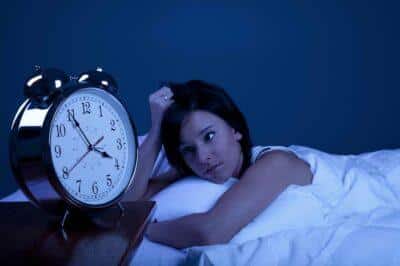
Although sleep is as vital to health as food and water, millions of Americans go to bed each night only to find themselves wide awake a few hours later, tossing and turning until sunrise. If this sounds like you and you wake up feeling as if you have been run over by a truck, you may be suffering from insomnia.
Insomnia is one of the leading causes of missed work days in our country and with our fast-paced lives, it quickly takes its toll on overall health and well-being.
Insomnia can be an infrequent thing that bothers you only once in a while or a chronic condition that actually interferes with your quality of life and productivity. Statistics tell us that more than 60 million Americans suffer from chronic insomnia that can interfere with work, relationships and health.
Leading alternative health practitioner Dr. Andrew Weil notes that the causes of insomnia vary greatly from one person to the next. However, depression is one of the most common causes along with the side-effects from medication, environmental changes, pregnancy, premenstrual syndrome and disruption in sleep patterns due to work, jet lag or extreme temperatures. Behavioral reasons for insomnia include drinking or smoking before bed, excessive daytime napping and anxiety.
Unfortunately, many people who battle chronic insomnia also suffer from other conditions such as chronic pain, sleep apnea, arthritis, restless leg syndrome, asthma and heart failure.
The hidden secrets of making herbal medicines…right at your fingertips!
Besides counting sheep, over-the-counter medications are a popular choice for those suffering with insomnia. Although both over-the-counter and prescription sleep medications may knock you out, they can also leave you feeling sluggish and foggy-headed the next morning. In addition, they carry with them a host of possible side-effects including headache, nausea, irritability, anxiety and more.
The good news is that there are a number of natural herbs that are equally as effective as commercial sleep aids. As a reminder, it is always best to speak to your healthcare practitioner before taking any herbs.

Valerian Root (Valeriana officinalis): Valerian is a flowering plant that is native to Europe, Asia and the United States. The plant’s root has earned a reputation as an excellent anxiety reducer. The ground root is sold in either capsule form or as a tea, and when taken about 30 minutes before bed will reduce anxiety and promote a restful night’s sleep.
Passion Flower (Passiflora incarnata): If you fall asleep quickly but tend to wake up often, passion flower is a wonderful option. Known to be perfectly safe for people of all ages and in all health conditions, passion flower can be found in capsule form or liquid. Aim for 30 to 60 drops of passion flower tincture taken 3 to 4 times a day. Because it is so safe, some people take it several times before going to bed to help them relax and prepare for sleep.
Magnolia Bark (Magnolia officinalis): Many people have elevated cortisol levels. Cortisol is a stress hormone that causes us to hang on to extra weight and promotes diabetes when elevated. Magnolia bark, a Chinese herb, lowers cortisol levels, which allows the body to relax. Because magnolia bark promotes rapid drowsiness, it is recommended not to take it during the day or when operating machinery or driving. Take this herb in a capsule form 30 minutes before bed or when you wake up in the middle of the night and cannot go back to sleep. Pregnant and nursing women should avoid this herb.
Other Tips for Sleeping Well
In addition to using some safe and effective herbs to help you sleep, be sure that you are exercising daily, eating a whole food diet and managing stress. It also helps to set a regular sleep and wake time to help get your body in the rhythm of sleeping.
Research indicates that using electronics before bed or while you are in bed may also hinder a good night’s sleep. Try putting down the electronics at least an hour before you plan on retiring and do not bring your phone or computer to bed with you. If you have trouble winding down, have a warm bath with some epsom salts and spray your bed sheets with a lavender linen spray. Just the scent of lavender can help induce relaxation and help you unwind after a busy day.
Some people find it beneficial to meditate or at least practice some deep breathing prior to bedtime to relax. While a big meal before bed is not a great idea, a cup of warm herbal tea is a great way to prepare for a restful night’s sleep.
Tell us your all-natural tips for sleeping, in the comments section below.
Sign up for Off The Grid News’ weekly email and stay informed about the issues important to you











